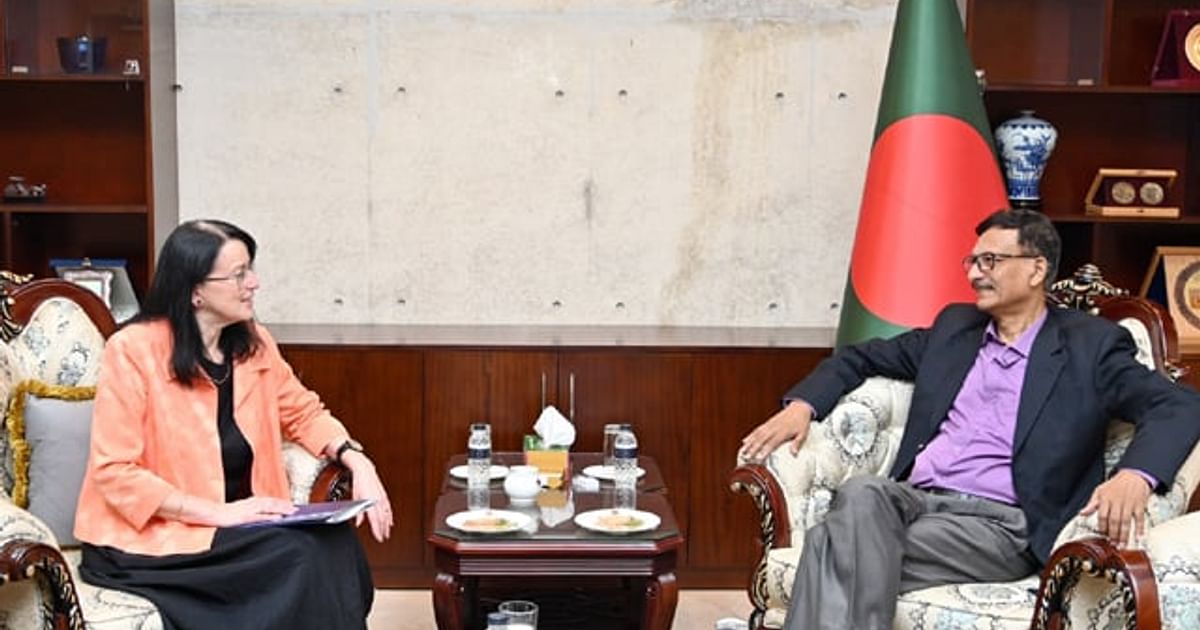ICT innovation for Bangladesh
Shafi Chowdhury & Mizan Choudhury
Published :
Nov 05, 2024 21:21
Updated :
Nov 05, 2024 21:21
Bangladesh stands at the cusp of a historic transformation. With global technology advancing at breakneck speed, the nation has good opportunity to harness the power of Information and Communication Technology (ICT) and transform its economic destiny. If Bangladesh acts swiftly and strategically, it can train millions of professionals, tackle its unemployment crisis, and establish itself as a global ICT hub.
The future is digital, and Bangladesh has the chance to lead it. A 20-year ICT vision, developed with bold foresight, aims to train 9 million skilled professionals by 2045. These trained professionals will not only fill the demands of the global ICT market but also fuel domestic growth, creating a new era of economic prosperity for the nation. It is a transformative plan that could redefine Bangladesh’s global standing. The time to act is now!
Challenge of Unemployment: Despite Bangladesh’s strong economic growth over the past decade, unemployment—especially among the youth—remains one of the country’s most pressing challenges. According to World Bank data, the unemployment rate sits around 4.2 per cent, but underemployment is a much larger issue, affecting millions of people, particularly the youth. Therefore, based on the unemployment rate of 4.2 per cent and the total labour force of 74.91 million, there are approximately 3.15 million unemployed people in Bangladesh.
Bangladesh’s workforce is expanding rapidly, with two million young people entering the job market each year. Many are struggling to find meaningful employment because the educational system is not fully aligned with the needs of a rapidly evolving global job market.
Most alarmingly, the youth unemployment rate is disproportionately high, with university graduates often unable to secure jobs that match their skills. This mismatch between education and the demands of the digital economy is creating a workforce that is underprepared and underutilised, at a time when global demand for skilled ICT professionals is soaring. According to World Bank, Bangladesh’s young population, approximately 27.96 per cent of the total population, presents a significant demographic dividend. This demographic asset can fuel economic growth and development.
This translates to a substantial number of young people who are entering the workforce or are poised to do so. Based on a total population of approximately 169.8 million, the number of young people aged 15- 29 would be around 47.7 million.
The Global ICT Job Boom: Around the world, digitalisation is rapidly reshaping industries. The global demand for ICT professionals is skyrocketing, fuelled by advancements in automation, AI, cyber-security, data science, cloud computing, and smart infrastructure. According to industry reports, 28.5 million new ICT jobs will be created globally by 2045 according to World Economic Forum’s Future of Jobs Report or Gartner’s annual ICT industry reports. The need for skilled talent is immediate and will only grow as technology continues to evolve.
Building a Digital Workforce: By utilising its existing educational institutions—polytechnic institutes, colleges, and universities— the country can gradually scale its training capacity to meet global demand.
The plan is simple but powerful. Bangladesh can expand and modernise its education system, focusing on ICT fields like software development, cyber-security, AI, and cloud computing. Each year, more professionals will be trained and with an 80 per cent success rate, many will secure high-paying jobs in the global market, earning an average annual salary of $100,000. With $504 billion generated annually by 2045, the ICT sector could become a pillar of Bangladesh’s economy. This would represent an enormous leap in the country’s GDP and global economic stature.
By training and deploying its ICT workforce globally, the sector will become a major contributor to the country’s GDP growth. The projected economic impact is staggering, with the ICT sector potentially contributing 37.1 per cent of GDP by 2040. By 2040, the ICT sector could be at the core of Bangladesh’s economic engine, driving growth and creating opportunities for millions if proper steps are taken right now.
The Road Ahead: To realise this vision, Bangladesh must overcome several challenges and take some bold actions immediately.
• Invest in Polytechnic Institutes, Colleges, and Universities: These institutions will be the foundation of the country’s ICT revolution. Expanding their capacity and modernizing their facilities will allow Bangladesh to produce the world-class professionals the global market demands.
• Partner with the Private Sector: Collaborating with global tech companies, offering internships, and providing practical training will bridge the gap between education and employment. Public-private partnerships will ensure that students are job-ready when they graduate.
• Develop Global Certifications: By ensuring that students graduate with certifications such as AWS Certified Solutions Architect, CompTIA Security+, and Certified Ethical Hacker, Bangladesh will ensure its workforce is recognised and in demand worldwide.
• Enhance Digital Infrastructure: Investing in 4G and 5G networks, upgrading data centres, and ensuring uninterrupted power will create the backbone of Bangladesh’s digital economy. This infrastructure will support both domestic growth and international collaboration, attracting foreign investment and enabling local businesses to compete on a global scale.
The aforementioned 20-year vision can elevate Bangladesh to a new level of prosperity. Delay to act risks missing the chance to be a global leader in ICT. By seizing this moment, Bangladesh can not only overcome its unemployment challenges but also establish itself as a hub for global innovation, setting the stage for a new era of economic growth and leadership in the digital age.
Lt Col Md Shafi Chowdhury, PhD, psc is Co-Chairman/Founder and CEO of Alltex International Consultancies and Services (AICS). Mizan Chaudhury, (CCIE) is Co-Chairman/Founder and President of AICS. AICS has office in Dhaka and New York.
www. alltex-intl.com







